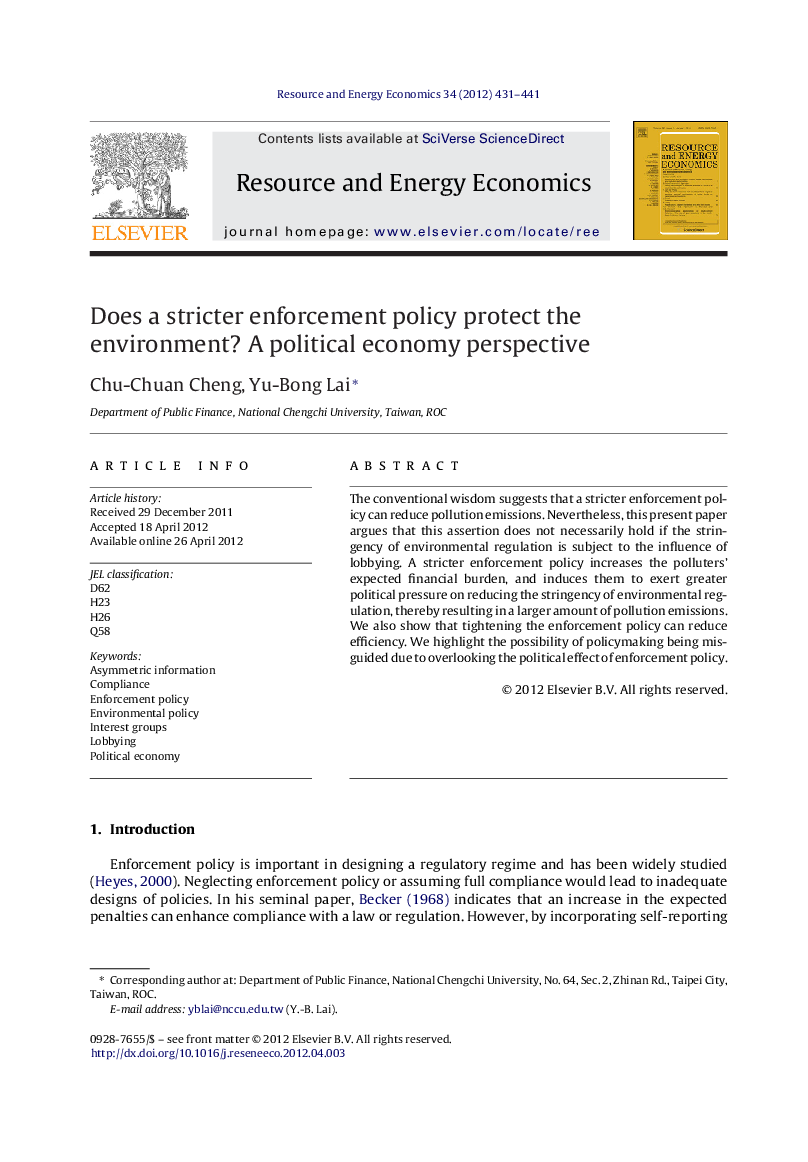| Article ID | Journal | Published Year | Pages | File Type |
|---|---|---|---|---|
| 985725 | Resource and Energy Economics | 2012 | 11 Pages |
The conventional wisdom suggests that a stricter enforcement policy can reduce pollution emissions. Nevertheless, this present paper argues that this assertion does not necessarily hold if the stringency of environmental regulation is subject to the influence of lobbying. A stricter enforcement policy increases the polluters’ expected financial burden, and induces them to exert greater political pressure on reducing the stringency of environmental regulation, thereby resulting in a larger amount of pollution emissions. We also show that tightening the enforcement policy can reduce efficiency. We highlight the possibility of policymaking being misguided due to overlooking the political effect of enforcement policy.
► We adopt a “common-agency” lobbying model. ► We examine the political effect of an enforcement policy on the stringency of the environment and social welfare. ► A stricter enforcement policy can lead to a greater amount of pollution emissions. ► Social welfare may decrease with the stringency of an enforcement policy.
